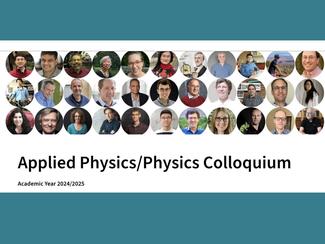
Triggering the Unknown: Model-Independent Discovery with Intelligent Detectors
Hewlett 200
Abstract: At the Large Hadron Collider (LHC), the coming decade will see discovery potential determined not only by luminosity but by the intelligence embedded inside the detector itself. In the absence of any clear signs for physics beyond the standard model, two options remain: either new physics is beyond the reach at the LHC or we are not looking in the right places. In response, new colliders have been proposed to take us beyond the LHC physics reach and new theoretical models (e.g. dark sector) have been proposed with signatures that could be hiding amongst the trillions upon trillions of proton interactions that take place at the LHC. The Compact Muon Solenoid (CMS) is a general-purpose detector at the LHC that sees petabytes worth of data each second during proton-proton collisions. At CMS a real-time trigger system built upon FPGAs is used to select interesting interactions. Recently this system has begun to incorporate unsupervised machine learning to flag anomalous events within nanoseconds for further analysis. This talk explores recent developments in trigger-level anomaly detection, including FPGA-deployed networks and the broader integration of graph networks, quantized transformers, and ASICs. These innovations point the way toward scalable, intelligent data selection for the HL-LHC, Future Circular Collider (RCC), and future muon colliders, enabling a broader, more agnostic approach to discovery.
Isabel Rose Ojalvo is assistant professor of physics at Princeton University. She earned her Ph.D. from the University of Wisconsin-Madison in 2014. Prior to receiving her doctorate, she worked at the Boeing Space and Intelligence Systems in El Segundo, California and was also a Dicke Fellow in 2016. Her work focuses primarily on studying physics that decays to Tau leptons using data collected by the Compact Muon Solenoid (CMS) Experiment at the Large Hadron Collider at CERN, near Geneva, Switzerland. She has also spent many years working on the Level 1 Trigger System at CMS, by commissioning and installing hardware and developing new high-speed algorithms which run on large Field Programmable Gate Arrays (FPGAs). She has received grants from the Department of Energy Office of Science Graduate Traineeship Program, National Science Foundation Graduate Traineeship Program, and the Eric and Wendy Schmidt Foundation, among others. She is the author of over 1000 scientific papers published in peer-reviewed journals.